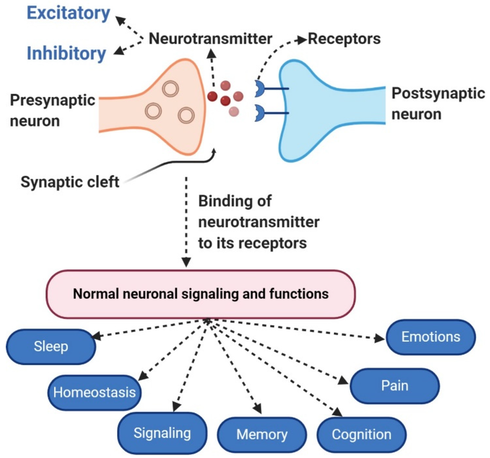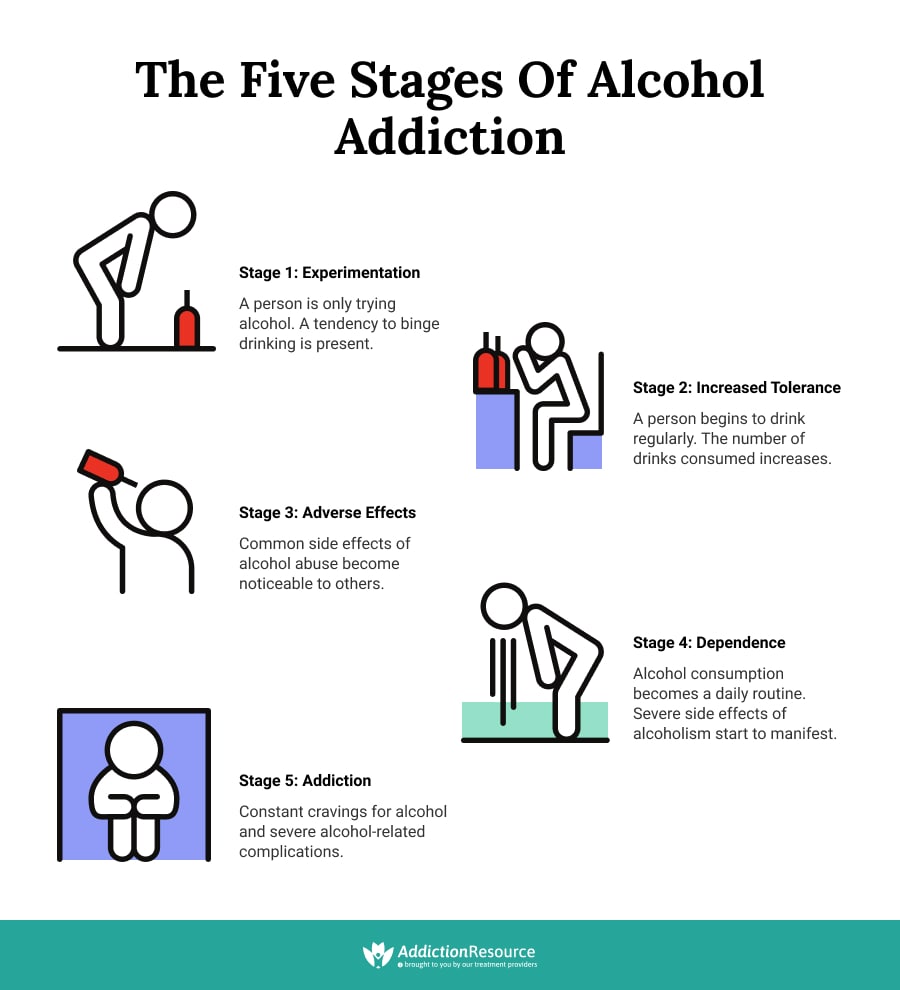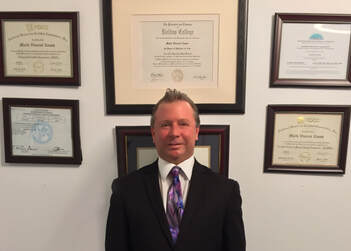|
Living with ADHD can be challenging, especially when it comes to managing mood swings. However, there are effective ways to ease these mood fluctuations and enhance overall well-being. In this blog post, we will explore how exercise, nutrition, and simple lifestyle changes can make a significant difference in managing ADHD symptoms and promoting a more balanced mood. Exercise - Your Mood's Best Friend: Whether you prefer walking, running, swimming, or any other form of physical activity, making time for exercise can be a game-changer for your mood. Just 20 minutes of daily exercise can lower stress levels, boost your mood, and provide you with a sense of motivation. The recommended exercise regimen involves getting your pulse rate above 100 for at least 30 minutes, at least 3 times a week. This type of exercise triggers the release of essential neurotransmitters that help balance mood and decrease ADHD symptoms.
Vitamins and Their Impact on Mood: B Complex: Some individuals with ADHD may have insufficient levels of vitamins B2, B6, and B9. Low levels of vitamin B6 can cause depression and confusion, while a lack of vitamin B2 can hinder the absorption of vitamin B6. Vitamin B9, or folate, has also shown potential in treating depression. Vitamin B12: Vital for brain health, vitamin B12 is best taken as a sublingual pill (under the tongue) or as an injection. Combining vitamin B12 with a B complex supplement can provide additional benefits. Healthy Eating Habits: While the link between specific foods and ADHD symptoms remains inconclusive, eating a balanced and nutritious diet is always a wise choice. Avoiding processed foods and gluten can be beneficial for overall health and well-being. Limit Alcohol and Cigarettes: Both alcohol and smoking can deplete essential vitamins like B12, exacerbating mood swings in individuals with ADHD. Consider avoiding these substances to support your mental health. Caffeine Intake: Although caffeine can enhance alertness, excessive consumption may lead to nervousness and restlessness, further affecting mood swings. Moderation is key; limit caffeine intake to about 150 mg (approximately 2 cups of coffee) in the morning and a cup at 3:30 PM to avoid energy crashes. Set a Schedule: Creating a daily routine can help ease ADHD symptoms and stabilize mood swings. Familiarity and structure can be comforting for the ADHD brain.
Learn as much as you can about ADHD – Become and expert at it.
Here’s a link to more information about ADHD. By incorporating regular exercise, a balanced diet, and making simple lifestyle adjustments, individuals with ADHD can take significant steps towards managing mood swings and promoting overall well-being. Embrace your superpower, make your hyperfocus work for you, and remember that small changes can lead to significant improvements in your mood and quality of life. Life After Sobriety: The Psychological and Health Journey of recovering from long term alcohol use8/2/2023
Mental Health Benefits:
a. Decreased Risk of Co-occurring Disorders: Sobriety can help alleviate or reduce the severity of co-occurring mental health disorders that often accompany alcohol addiction, such as depression, anxiety, and bipolar disorder. b. Enhanced Self-Esteem: As individuals achieve sobriety milestones, their self-esteem and self-worth tend to improve. They gain a sense of pride and accomplishment, contributing to a positive self-image. Choosing sobriety is a life-altering decision that encompasses not only physical well-being but also profound psychological and health experiences. The journey of recovery may be challenging, but it brings opportunities for personal growth, improved relationships, and enhanced overall well-being. Embracing sobriety opens the door to a fulfilling and meaningful life, one that is free from the grips of alcohol addiction and filled with hope for the future. For those considering the path of sobriety, remember that seeking support from healthcare professionals, therapists, and support groups can provide invaluable assistance in navigating this transformative journey. In this blog post, we delve into the world of cognitive behavioral therapy (CBT) and its effective techniques to alleviate anxiety, panic attacks, and overall tension. Join us as we uncover the insights and expertise of Mark Zauss, a highly respected Double Board Certified licensed clinical psychotherapist, specializing in CBT.
Understanding Cognitive Behavioral Therapy: Cognitive behavioral therapy is a well-established form of psychotherapy that focuses on the connection between our thoughts, emotions, and behaviors. By identifying and challenging negative thought patterns, CBT aims to modify unhelpful behaviors and improve emotional well-being. Meet Mark Zauss, the Expert: Mark Zauss is a highly regarded licensed clinical psychotherapist with double board certification. With extensive experience in CBT, Mark has helped countless individuals overcome their anxiety, panic attacks, and tension through evidence-based techniques and individualized therapy. Reducing Anxiety Through CBT:
Mark Zauss, a highly respected Double Board Certified licensed clinical psychotherapist, utilizes cognitive behavioral therapy to help individuals reduce anxiety, overcome panic attacks, and manage tension. Through thought challenging, exposure therapy, relaxation techniques, and individualized therapy sessions, Mark empowers his clients to take control of their mental well-being. If you're seeking effective strategies to alleviate anxiety, CBT and the expertise of professionals like Mark Zauss can offer you the support you need to live a more balanced and fulfilling life. Disclaimer: The information provided in this blog post is for educational purposes only and should not replace professional medical advice. If you are experiencing severe anxiety or panic attacks, please consult a licensed mental health professional. Full Video! Monument Live With Dr. James Besante, MD: Everything You Need To Know About Alcohol & Sleep. In case you missed it, here's the Monument Live recording with Monument Advisor James Besante, MD. To those who tuned in live, thank you for the great questions! In this chat we cover: 🧠 How alcohol affects the brain, and how that in turn affects sleep 🏛️'What's the deal with sleep architecture?' And understanding our sleep cycles 🕰 How your sleep changes as you remove alcohol from your life (and on what timeline) ☝Tips for managing sleep-related anxiety, especially in early recovery 🔄How to build routines and habits that support more restful sleep and wellness 🎉How better sleep can improve overall health, and why changing your relationship with alcohol is worth celebrating Click Below for the full video! https://community.joinmonument.com/post/full-video-monument-live-with-dr-james-besante-md-everything-you-need-to-kn--60232ad2ac3e7c6cea76b646 Not knowing how to act around your newly sober family can be daunting, awkward, and confusing. You may have several questions as how you should act and what you might say to your recovering loved one. Can I drink around them? Are they sick? Are they an alcoholic? Will their personality change? There might be an internal struggle to want to help your family member with their addiction, which may inevitably cause tension and stress. What to do and how to do it will be discussed in this article to help your loved one navigate their new journey of sobriety.
The first part is to gain a better understanding of what being an alcoholic means? Being an alcoholic is actually not a moral or character issue. It’s a chemical one and here are the reasons why. The brain is constantly attempting to maintain a normal balance of brain chemicals also called nerurotransmitters. In other words, the brain is always trying to retain a sense of normalcy, also referred to as homeostasis. When alcohol is introduced to the body, it challenges the brain’s effort to maintain homeostasis. Alcohol changes the brain chemistry by affecting the neurotransmitters including dopamine, Seratonin, GABA (γ-aminobutyric acid), and Glutimate. As the alcohol use increases, the brain tries to maintain a balance of these neurotransmitters according to the frequency and amount of alcohol intake. Over time, the brain learns that it does not need to create as many of these brain and it strengthens the dependence of these neurochemicals provided through alcohol use. The more frequently and the greater amount of alcohol consumed, the more the brain may depend on these chemicals. What happens when the brain does not maintain homeostasis? The fight or flight gland in the brain, called the hypothalamus, becomes desperate and believes that it is in danger if it does not receive the alcohol. This process causes an internal struggle in the person that is trying to stop drinking. The fight or flight gland believes it has to have alcohol to survive, and the conscious, executive decision making part of the brain is trying to resist. This causes irritability, anger, sadness, fear and anxiety to the person who is trying to remain sober. How do you communicate with your recovering family member? Here are a few suggestions to help your family member who is struggling. Listen, be mindful, and supportive. Specifically this means that you decide if it’s ok to communicate with them about their drinking. Look them in the eyes and be genuine. First ask, “How are you?” If they seem that they want to talk about it, you could say: “I can imagine this process must be difficult and I’m proud of you.” “What if anything can I do to help?” If your family member wants your help, they’ll let you know. Can you drink in front of them? Be sensitive to what may trigger their alcohol use. If you’re not sure, don’t do it. In the first 60 days of recovery it can be difficult for someone to be around alcohol as the smell of it can be a powerful trigger, as well as the urge to join in the fun. In some occasions, supporting your family member may include sacrificing some of your own plans to help your family member. Do you try to monitor their drinking? Try not to act as the enforcer of your family member’s recovery. For your family member to succeed, it has to be his or her decision. Give them a chance to be in charge of themselves. There is an old saying that says, “you have to chase your sobriety like you chased the drink.” Your family member has to own their own sobriety. No one can do it for them. Keep it light and fun. Your family member can benefit from experiencing a fun time without drinking. One of the main triggers to drink is F.O.M.O. – Fear Of Missing Out. This can be a strong trigger that the Hypothalamus gland can use to persuade your family member to drink again. Your family member is still the same person and going through the necessary process of sobriety. It’s not easy, but if they can get to the other side they will be a stronger and no longer be oppressed by alcohol. They deserve a chance to live a fulfilled and happy life. Author, Mark Zauss, BC-TMC, LMHC, CCMHC, NBCC Thank you, Monument for publishing this article I wrote. Below is an article I wrote a few weeks ago and was published by a company called Monument which is an online alcohol addiction platform I have been working employed by for several months. Monument is a comprehensive platform and they have been excellent to work for and have helped a great deal of people.
Here is a link to the article: Why Your Brain Wants To Drink This Election Season, And What To Do Instead 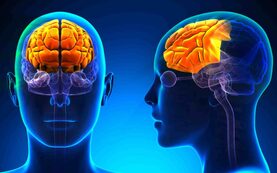 During these stressful times, it is important to be mindful of our level of anxiety. One a scale of 1 to 10 with 10 being the highest, what number would you rate your average level of anxiety in the previous 2 weeks? Has your anxiety increased since the pandemic? If you are experiencing an increase in anxiety, then you are definitely not alone. The collateral damage from the pandemic has caused a significant increase in deteriorating the mental health of individuals who have lost their jobs, have financial issues, and the first responders who work long hours. Normal and familiar coping mechanisms are no longer effective and according to Forbes, The Pandemic Has Caused An Increase In Anxiety, Stress, Depression, And Suicides. According to Dr. Ann Epstein, a psychiatrist at Harvard-affiliated Cambridge Health Alliance and medical editor of the Harvard Special Health Report Coping with Anxiety and Stress. "Anxiety signals us that something is awry or might need our attention. However, you don't want the response to become exaggerated or to dominate your life," she says. Increased anxiety can affect your decision-making process, your health, and your relationships. Techniques to reduce stress and anxiety can help you stay healthy during turbulent times. Below is information about the breathing technique as well as a basic cognitive-behavioral technique to treat the anxiety. The first step is to become more aware of the anxious symptoms such as increased heart rate, heavy feeling in the chest, shaking hands, racing thoughts, etc. Then acknowledge the anxiety and try not to resist it. Below is an explanation to help better understand the etiology of anxiety. When we have a feeling of anxiety, the prefrontal cortex is flooded with thoughts which are brain chemicals also called neurotransmitters. This is called anxiety. This increased volume of thoughts or neurotransmitters can become overwhelming which causes anxiety. When we suppress the anxiety, we may experience depression. When anxious thoughts occur, they trigger a glad inside the brain called the hypothalamus. This is known as the "fight or flight" gland. If you have ever watched a terror movie, you would notice you would become nervous about the person in the movie. That's because the hypothalamus cannot tell if you are in the movie or watching it. The hypothalamus cannot tell the difference between reality and perceived reality. The hypothalamus tells the rest of the body to react, create adrenaline, and create more neurotransmitters. This same process takes place when we react to negative thoughts, memories, or when anxiety builds up over time and releases. When this happens we try different ways to cope and control this uncomfortable feeling. Some people drink or use drugs, some have panic attacks, others control food. The reaction is a cycle. To change this reaction, we have to break or interrupt the cycle. Here is a breathing technique to reduce anxiety. Take one huge breath and exhale. Then breathe in through the mouth for 8 seconds, hold your breath for 4 seconds, and exhale through the nose for 8 seconds. The cycle of anxiety, depression, or racing thoughts is interrupted by the breathing. This is because oxygen literally dilutes the number of neurotransmitters in the prefrontal cortex. The prefrontal cortex of the brain is where the thoughts and anxiety are dwelling. This reduction of neurotransmitters (thoughts) tells the hypothalamus that you are not in danger and causes your negative thoughts and emotions to decrease. The other part of this treatment is to increase awareness of when you are anxious. Become more mindful of when you experience anxiety. Notice the physical symptoms, acknowledge them, and accept that you are anxious. Then practice the breathing exercise. Without intervention, the cycle of anxiety is not likely to change. In other words, if you keep doing the same thing you have always done, you’ll get the same thing you always got. You must interrupt the cycle of anxiety in order to change it. The breathing technique would be practiced once an hour for approximately 1 to 2 minutes if possible. Sources: Forbes; Jack Kelly, Senior Contributor https://www.forbes.com/sites/jackkelly/2020/08/18/the-pandemic-has-caused-an-increase-in-anxiety-stress-depression-and-suicides/#58c67f785863 Harvard Health, Harvard medical school https://www.health.harvard.edu/anxiety/staying-calm-in-turbulent-times?utm_content=buffer917a0&utm_medium=social&utm_source=twitter&utm_campaign=buffer 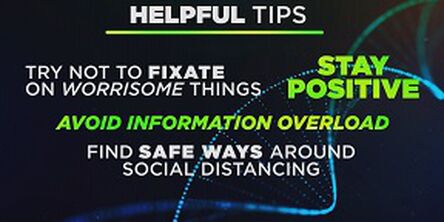 Are you noticing an increase in your anxiety during self distancing? Underlying anxiety which commonly dwells in our subconscious is usually muted by staying busy throughout the day and carrying out our normal tasks. This is our normal pattern of life which we are used to and expect. Recently with social distancing, our usual life pattern has been disrupted and replaced with isolating ourselves from others. The normal pattern of life has been replaced with the unknown. In our daily lives, we basically know what to expect from day to day and what the near future is going to be like. Recent events have made that unclear. The purpose of this blog entry is to gain further insight and perspective into how our normal underlying anxiety is increased by the changes created by social distancing, being isolated from others, and how our normal coping strategies have been altered. We are basically social people and we either enjoy or are required to interact with others. This interaction keeps our minds busy and provides a sense of belonging. This interaction allows us to have personal expression and interact with people in a familiar social environment we are used to. For most people, this social activity has been a constant behavior for several years. When we are required to abruptly cease this social behavior, a form of a crisis is created which causes the brain to figure out how to deal with this change is social interaction. The human brain also likes to know what to expect and does not enjoy uncertainty. Job loss, change in income, altered social interaction and fear of the unknown are just a few basic presumptions of what many are experiencing. Most of us have some form of anxiety in our subconscious which we do our best with to deal with every day. When we are busy, we are focusing on our every day lives which likely pushes our anxiety back into our subconscious. When we have no activity to distract us for extended periods of time, our subconscious is more likely to reveal unfinished business from our past. His can lead to an increase in dreams, irritability, increased anger and decreased ability to cope. Anxiety definition: Anxiety is the result of threats that appear to be uncontrollable or unavoidable. Anxiety is considered to be a normal reaction to stress. When faced with a situation we have not coped with before, our “fight or flight” response is activated, adrenaline is increased, heart rate rises, and our immune system is lowered to provide more energy to protect us from the perceived threat. Anxiety can also be described as uneasiness, apprehension, fear, or worry. F.E.A.R. False Evidence Appearing Real * Fear is related to escape and avoidance. * Fear occurs in the presence of an observed threat that is unfamiliar and the solution of the threat is unknown. * The threat can be physical or emotional. * When fear is not worked through, it remains in the subconscious and may manifest into anxiety. * When fear becomes excessive and dominates the consciousness, it can be anxiety. How the brain perceives fear, Have you have ever almost been in a car accident and experienced your body become tense, rapid heart rate, sweating and even dizziness? This response is involuntary and occurs because the brain perceives you are in imminent danger. Another example is if you have experienced fear while watching a horror movie. Although you are not in actual danger during the horror movie, the body and brain perceives fear the same. The primitive response part of the brain (hypothalamus) cannot tell the difference between actual reality and perceived reality and therefore cannot determine if you are in actual danger or perceived danger. The hypothalamus releases chemicals and can help to regulate the body’s temperature. The same psychological response may occur (rapid heart rate, sweating, tense muscles) because the hypothalamus perceives a threat. Your hypothalamus cannot tell the difference between actual danger and perceived danger, therefore a physiological response may occur from a memory that was once perceived as a threat. What can we do about anxiety? Mindfulness: Be aware of your physical responses to anxiety. Be aware of negative self talk. Write down both involuntary physical responses and negative self talk. Breathing: If we can interrupt the physiological response, we can effectively alter how we react to anxiety. Acknowledge the physical responses and practice relaxation techniques such as deep breathing. Slowly inhale through the nose for 8 seconds, hold your breath for 4 seconds, and slowly breathe out through the mouth for 8 seconds. Practice keeping the air as steady as possible when breathing out. Notice the tension on your shoulders, neck and face start to diminish. Negative self talk: Question the validity of the negative self talk. Are the negative things your saying about yourself actually true? What positive thoughts will you use to replace the negative thoughts. These negative thoughts serve no purpose and must be re-framed. Experiencing anxiety? Online counseling can helpAre you feeling more anxious, having difficultly sleeping, feeling restless? The world has changed during the last few months and many are struggling to adapt. For many of us, our daily schedules have changed and many are feeling isolated and alone. During this time it is common for people to experience difficulty sleeping along with a significant increase in anxiety. Uncertainty of the future combined with employment issues, having enough supplies and food, fears of ourselves or loved ones becoming ill and what our future will look like. There are all valid concerns that many of us our facing today. This fear of uncertainty can cause emotional distress and decrease our ability to cope while we are trying to figure out our new reality.
You don't have to face this alone. You can now receive affordable therapy from a licensed mental health counselor from the comfort of you own home. Online therapy is effective, affordable and completely confidential. Why get therapy now? The result of increased anxiety almost always includes a decreased ability to make decisions. Our decisions effect our insight which can diminish our ability to successfully navigate through this transition. If there is ever a time we need to be able to make sound decisions, it's now. Here are the benefits of online counseling. Accessibility - Online counseling removes barriers such as travel and time constraints. Thanks to technology, online mental health counseling are easy to use and accessible from anywhere. ' Safety - With the emerging Covid 19 virus, necessary precautions such as social distancing are necessary to keep from catching the virus an spreading it. Online therapy is an excellent and safe alternative. Confidential - Mark utilizes the Betterhelp.com platform is HIPPA compliant and uses the most advanced software to insure safety, confidentiality ease of use and convenience. Time - Online therapy saves time and eliminates travel expenses. There is no risk driving to and from the therapy session, no time is taken away from traveling and no gas or tolls to pay. |
